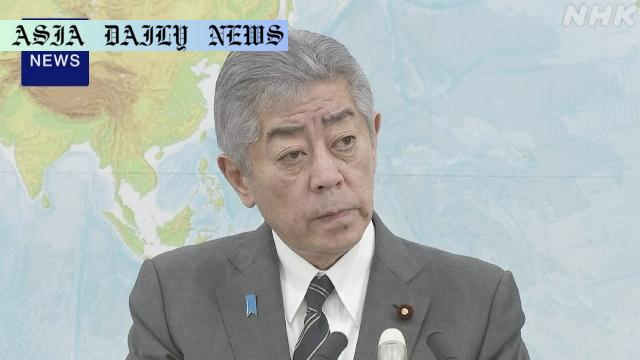Myanmar: Japan sends a 32-member medical team with essential aid, including tents and hygiene supplies, to assist quake-hit regions.
- Japan sends 32-member medical team to quake-hit Myanmar.
- More than 240 tents and hygiene kits shipped to aid survivors.
- Japan International Cooperation Agency coordinates relief efforts.

Introduction: Japan’s Swift Response to Myanmar’s Earthquake
The devastating 7.7 magnitude earthquake that struck central Myanmar has left behind widespread destruction and a considerable humanitarian crisis. Recognizing the urgency of the situation, Japan has acted promptly by dispatching a 32-member medical team to provide critical support to the affected areas. This aid effort comprises not only skilled medical professionals, such as doctors and nurses, but also essential supplies necessary for recovery and stability in disaster-stricken regions. Foreign Minister Iwaya Takeshi has led the initiative, demonstrating Japan’s unwavering commitment to global disaster relief and humanitarian aid during pivotal moments.
Details of the Assistance Team
The medical contingent includes 32 expert personnel, including experienced doctors and nurses, all of whom are set to depart from Tokyo. Their goal is to swiftly address critical medical needs in the disaster-hit zones of Myanmar. This team will work in conjunction with another Japanese group of experts already stationed in Myanmar to assess disaster-related needs. Together, they aim to mitigate the health risks posed to earthquake survivors through timely and effective treatment. By pooling resources, Japan ensures comprehensive coverage and resource allocation for those affected by the disaster.
Humanitarian Supplies: Beyond Medical Aid
In addition to medical assistance, Japan is addressing other essential needs of the survivors. The Japanese government has provided 240 waterproof sheets and 450 tents to those displaced by the earthquake. Further, hygiene products, water purifiers, and clean drinking water are being supplied through collaborations with the Japan International Cooperation Agency (JICA) and the United Nations. These measures emphasize a holistic approach to disaster relief, ensuring that both immediate and long-term challenges faced by survivors are tackled with precision.
Expressions of Solidarity and Commitment
Foreign Minister Iwaya Takeshi expressed his condolences to those affected by the earthquake in Myanmar. His sentiments extend beyond words as they reflect Japan’s continuous effort to provide humanitarian assistance globally. Through swift actions and a strong commitment to international cooperation, Japan has reiterated the importance of solidarity in combatting global crises. This initiative also highlights how countries can collaborate through organizations like the UN to extend far-reaching aid to the regions most in need.
The Importance of Coordinated Disaster Relief
The significant magnitude of this earthquake has underscored the pressing need for disaster response systems that are both efficient and collaborative. Japan’s multi-faceted approach exemplifies how nations must coordinate resources and expertise in times of natural catastrophes. By offering comprehensive support to Myanmar, Japan is showcasing how solidarity can transform lives and facilitate recovery post-disaster. The initiative underscores a deeper commitment to fostering partnerships between nations and institutions to ensure rapid responses to emergencies.



Commentary
Japan’s Exceptional Humanitarian Role
The decision by Japan to send a 32-member medical team and additional logistical support to Myanmar is a commendable example of global solidarity. This initiative demonstrates that Japan sees itself as a proactive contributor to the global community, especially in times of crisis. The speed and efficiency with which decisions were made and resources mobilized showcase Japan’s expertise in handling natural disasters.
Beyond Immediate Aid: A Holistic Approach
What stands out in this aid initiative is Japan’s comprehensive approach that goes far beyond emergency response. By addressing medical, shelter, and hygiene needs, Japan has ensured that all aspects of post-earthquake recovery are considered. This strategy highlights the importance of addressing the entire spectrum of human needs in disaster zones – a practice that should inspire other nations to adopt a collaborative and thoughtful approach to humanitarian aid.
Strengthening Global Partnerships
Through efforts like these, Japan reinforces the importance of international partnerships in tackling crises. Having worked closely with the UN and other international agencies, it is evident that such collaborations lead to impactful and efficient delivery of aid. These efforts create precedents for how nations can unite resources and expertise to provide meaningful assistance to the most vulnerable communities in times of need.
Conclusion: A Model of Global Humanity
Japan’s response to the earthquake in Myanmar is a reminder that global humanity thrives when actions are taken swiftly and effectively in the face of adversity. By standing with Myanmar in this trying time, Japan not only lifts spirits but also builds stronger diplomatic ties. It is an exemplary model of leadership and compassion that the entire world can learn from.